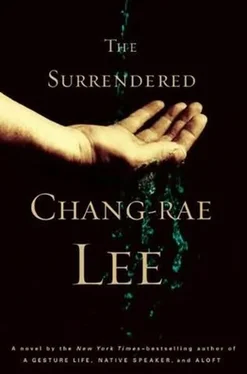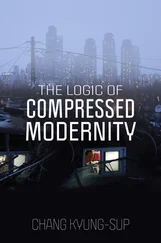At the residenza office on the ground floor he held up the bag of their dirty clothes and tried to communicate to the woman at the desk that he wanted to wash them someplace. She kept talking and motioning and then began pulling the bag away from him and it was only when Bruno appeared that it was sorted out; it had been so long since Hector had stayed in anything but a fleabag hotel that he’d forgotten that such a thing as laundry service was possible. He gave over the bag and had Bruno make sure she knew to leave it outside their door, as the signora was sleeping. Outside they made their plan. Hector had briefly mentioned to Bruno earlier that they were looking for someone and now he showed him the old school photograph and said he was likely working in an antiques shop.
“There are many numerous establishments of antiquities here in Siena, signore ,” he replied. “But I have cognizance of the very best ones, and we shall be advised to start at these.”
He explained that it would be better to go by foot today. They were heading to Il Campo, the large main square, where the most prominent shops were, several of them in the piazza itself and on the street immediately ringing it. This was where they would run the horse race tomorrow.
“Excuse me if this is offensive to you, but may I inquire who is this fellow you are looking for?”
“He’s her son.”
“I see,” he said, openly searching Hector’s face. “This is dolorous. Is the situation due to an estrangement?”
“I suppose so.”
“You are a good friend, then,” Bruno said.
“No, not a good friend.”
Bruno nodded curiously. He had a funny way of speaking and was forthright, but he still had a sense of when to keep quiet. He was just about the age Nicholas was now, and Hector decided he was lucky to have him along, so he could get at least some practice dealing with a younger fellow. All along he had assumed that June would be the one dealing with Nicholas, and that if he did anything at all, he’d do as she had asked him, perhaps physically compel him in some way. But now he wasn’t sure what he’d do, and he was glad for Bruno’s presence, to run interference, maybe even to talk for him if necessary.
On the way to the main square they passed smaller squares and side streets completely taken over by the contrade . It was as if circus gangs and their families had overrun the town. They were making preparations for tomorrow’s race, making banners and decorating large chariots for the prerace procession. The banners, patterned with medieval-looking crests and designs, festooned the doorways, the motifs rhymed in the smocks and costumes of the mostly young people milling around the long tables on which older women were setting out bread baskets and plates of salami and pitchers of water and wine. Small dogs and children, also dressed in contrada colors, scampered after one another across the cobblestones. Tourists stood to the side, pointing and taking pictures. Some assemblages spontaneously broke into song, rehearsing traditional anthems that sounded like stadium chants crossed with folk ballads, the reports of which would prompt a competing chorus across the way, drawing out yet another chorus, echoes of the bellowed music rounding through the stone-walled city.
Hector thought back to certain summer days in Ilion, though those would too often end not in shared song but shouts and strife: a scene of mostly company families picnicking at the river park, the men playing baseball with a keg of beer stationed by first base, the mothers cheering hotly between gulps of their shandies and lemonades, all of it peppy and happily competitive until some red-faced lout (sometimes Jackie Brennan) would shriek about a rough slide or inside pitch; there’d be taunts and shoves, and unsettled scores would rear up and ignite a scuffle or two, until at some point everybody quit going altogether, staying at home and drinking on their own porches and giving familial grief to one another. If he had grown up here instead of in Ilion, would he look forward to sitting cheek by jowl each year with his lifelong neighbors? Would he be drinking in celebration, crooning with them until his chest ached? Serve as an estimable brother, or husband? Maybe even a father? Or would he be just as unsociable as now, maybe more so with the standing expectation that he join in? Surely there were malcontents and miscreants here like anywhere else, and yet to look upon the gatherings he could believe what Bruno was telling him, that near every last able-bodied person took part, at least marginally, that a “communal tide,” as the young man put it, swept up all, even the flotsam like Hector, who would never hold high any colors.
“How long will you be visiting?” Bruno asked.
“Just today.”
“You will not witness the race?”
“No.”
“The Palio is a spectacle, something not to be missed. This time it is a special one, as I indicated, a commemoration of the Comune. But I understand. The lady you are traveling with, she is not in good health.”
“That’s right.”
“My family is close-acquainted to the best general physician of our city. He practiced in Milano.”
“Don’t sweat it.”
“It is no issue. I will telephone him, whenever she needs.”
“She doesn’t need anything,” Hector said. “Not anymore. That’s it, okay?”
Bruno nodded. They had reached the large main square, which suddenly opened up from the shadowed narrow street in a brilliant wash of light. Roving hawkers peddled guidebooks and souvenirs, drinks and snacks. The antiques shops in the square that Bruno suggested were open and crowded with customers, but the proprietors, both of whom seemed to know Bruno, or at least recognized him as a local, had no reaction to the photograph he showed them. As they departed the second shop the owner eyed Hector at length, with a kind of pitying disdain, as if he were some sad sack of a parent futilely searching for someone who was no doubt wayward from very early on.
Next they went to a shop just outside Il Campo, on the way toward the duomo on the Via di Città; here the proprietor told Bruno that a young foreigner had recently inquired about working there. But hers was a smaller shop than those in the main square and she only needed help on Saturdays, and the young man, whom she remembered as confident and vaguely Oriental-looking, had asked her if there was another antiques dealer who could use an English-speaking helper. She had pointed him to a specialty dealer on the western end of town, a new high-end gallery that catered to wealthy tourists and whose owner was not a Sienese, and thus perhaps in need of a manager. It was near another famous church of the city, the Basilica di San Domenico, and though Bruno didn’t know of it he decided they should go there; if it was unfruitful they could easily loop up and stop back at the residenza , to check on the lady, before trying the last few neighborhoods on the eastern side of town. Barring all that, tonight they could visit the nightclubs and coffeehouses that were popular with students and younger people; if Nicholas were indeed in Siena he would likely be out on the eve of the race.
The shop was a new glass-façade gallery across the street from the small plaza in front of the basilica. Three large oil paintings hung in the front display, tame, Impressionist-style landscapes of the Tuscan countryside. They had to push a buzzer to be admitted, and after a moment Bruno pressed again and a pretty, bespectacled young woman dressed in a tailored gray suit and white blouse appeared at the desk and let them in. The gallery was large and double-winged, as it took up the ground-floor retail space on either side, the central room a sculpture and jewelry gallery, with the wings devoted to modern and antique furniture on one side and paintings on the other. The young woman immediately took Hector for a tourist (his new shirt and trousers, no doubt) and introduced herself in perfect English as Laura, and Bruno briefly explained (also in English) why they were there. They showed her the old middle-school photograph. She examined the picture, the scantest ripple crossing her face, and when Bruno asked her again if she knew such a person she said that there was a young Englishman who was recently hired.
Читать дальше











